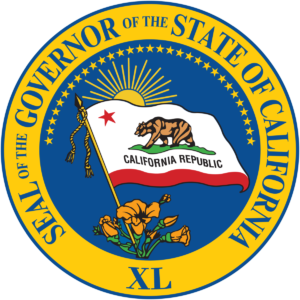Governor Newsom Issues New Executive Order Further Enhancing State and Local Government’s Ability to Respond to COVID-19 Pandemic
Directs Californians to follow public health directives including canceling large gatherings more than 250 people
Order removes waiting period for unemployment and disability insurance for Californians who lose work as a result of the COVID-19 outbreak
Readies state to commandeer hotels & medical facilities to isolate & treat COVID-19 patients
Allows local and state legislative bodies to hold meetings via conference calls while still meeting state transparency requirements
 SACRAMENTO (March 12, 2020) – Governor Gavin Newsom today issued a new executive order further enhancing California’s ability to respond to the COVID-19 pandemic.
SACRAMENTO (March 12, 2020) – Governor Gavin Newsom today issued a new executive order further enhancing California’s ability to respond to the COVID-19 pandemic.
The Governor’s order:
- Waives the one-week waiting period for people who are unemployed and/or disabled as a result of COVID-19;
- Delays the deadline for state tax filing by 60 days for individuals and businesses unable to file on time based on compliance with public health requirements related to COVID-19 filings;
- Directs residents to follow public health directives and guidance, including to cancel large non-essential gatherings that do not meet state criteria;
- Readies the state to commandeer property for temporary residences and medical facilities for quarantining, isolating or treating individuals;
- Allows local or state legislative bodies to hold meetings via teleconference and to make meetings accessible electronically; and
- Allows local and state emergency administrators to act quickly to protect public health
- The full executive order can be found here.
- Last night, Governor Newsom and state public health officials announced that gatherings should be postponed or canceled across the state until at least the end of March. Non-essential gatherings must be limited to no more than 250 people, while smaller events can proceed only if the organizers can implement social distancing of 6 feet per person. Gatherings of individuals who are at higher risk for severe illness from COVID-19 should be limited to no more than 10 people, while also following social distancing guidelines.
- “Each of us has extraordinary power to slow the spread of this disease,” said Governor Newsom in announcing the state’s new policy last night. “Not holding that concert or community event can have cascading effects — saving dozens of lives and preserving critical health care resources that your family may need a month from now. The people in our lives who are most at risk – seniors and those with underlying health conditions — are depending on all of us to make the right choice.”
- State Efforts to Assist California Workers
- California will continue acting swiftly to help workers hurt by COVID-19. Affected workers can visit the Labor & Workforce Development Agency’s website to review what benefits are available to them. For instance,
- If you’re unable to work because you are caring for an ill or quarantined family member with COVID-19 you may qualify for Paid Family Leave (PFL).
- If you’re unable to work due to medical quarantine or illness, you may qualify for Disability Insurance. Those who have lost a job or have had their hours reduced for reasons related to COVID-19 may be able to partially recover their wages by filing an unemployment insurance claim.
- If a worker or a family member is sick or for preventative care when civil authorities recommend quarantine, workers may use accrued paid sick leave in accordance with the law.
- If workers are unable to do their usual job because they were exposed to and contracted COVID-19 during the regular course of their work, they may be eligible for workers’ compensation benefits. All information and resources can be found at Gov/Coronavirus2019
All Community Guidance Released from CDPH:
The California Department of Public Health has consolidated state guidance on how to prepare and protect Californians from COVID-19 in a single location. This includes guidance for:
- Health care facilities, including long-term care facilities
- Community care facilities, including assisted living facilities and child care
- Schools and institutions of higher education
- First responders, including paramedics and EMTs
- Employers, health care workers and workers in general industry
- Health care plans
- Home cleaning with COVID-19 positive individuals
- Gathering Guidance
- Guidance for Using Disinfectants at Schools and Child Cares
- Laboratories
- Health care facilities from Cal/OSHA
- Homelessness Providers
What to Do if You Think You’re Sick:
Call ahead: If you are experiencing symptoms of COVID-19 and may have had contact with a person with COVID-19, or recently traveled to countries with apparent community spread, call your health care provider or local public health department first before seeking medical care so that appropriate precautions can be taken.




















